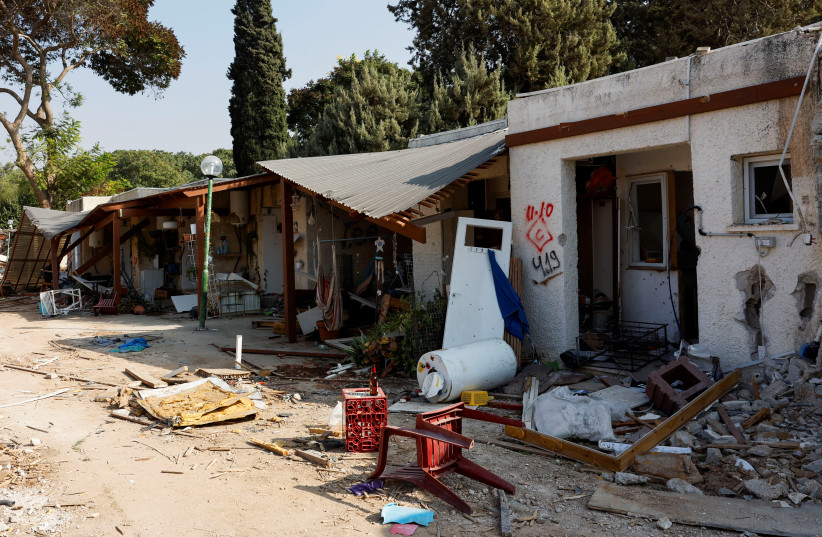A thirty-minute documentary, entitled 'Failure at the Fence,' was broadcast on PBS in the United States on Tuesday night, detailing Hamas's breach on October 7 of Israel's security barrier on the Gaza border.
The documentary, which aired as part of PBS's Frontline program, was the result of a collaboration between PBS and the Washington Post - a newspaper that has recently come out with several original pieces centered on the Israel-Hamas War.
In the film, eyewitness accounts from the frontlines are interspersed with interviews of security officials, all of whom say that Israel failed to appreciate the threat posed by Hamas.
The documentary does not focus on the atrocities committed once Hamas terrorists had entered Israel, and it includes only scant details about the particular acts of violence. The specific ways in which Israeli civilians were killed, or the abuses committed while they were still alive, are not addressed. The film focuses instead on the scale and success of the attack as an operation, given a series of vulnerabilities on the Israeli side.
Kfar Aza resident Israel Lander, 65, tells the interviewer in the film: “They told us that they built a great wall. We heard the claims about the daring nature of the army and our technological power. We believed that it could protect us.”

Fence was built for terrorists, not "a terror army," expert tells PBS
The documentary explains the different measures used to surveil and protect the border between Israel and Gaza, and the ways Hamas overwhelmed them. It also details intelligence Israel had about the attack plans, as well as publicly available videos from Hamas that presaged the massacre, but were not taken as presenting a real threat.
The theme that emerges is of a system that was built to prevent terrorism, but was not prepared for what was essentially a military operation. “The fence is not built for such fighting,” Danny Tirza, the architect behind the separation barrier between Israel and the West Bank, says in the film, speaking about the Gaza border.
“It was built for another thing,” he says. “If you want to stop one, two, three terrorists, you are doing it with soft tools, like what we did. We didn’t [think] that there would come a terror army from the other side, that were crossing at the same time, [in] big groups,” he explains. “And we were not prepared for it.”
Asked why Israel did not prepare for the tactics employed by Hamas, which the group was visibly training for, the IDF’s spokesman in English, Lt. Col. Peter Lerner, tells the interviewer that this will be one of the questions asked once the war is over.
“There will be a time when the IDF will be doing that soul searching that is required,” Lerner says. “And the IDF will review that. And those that need to take responsibility will have to take responsibility.”
